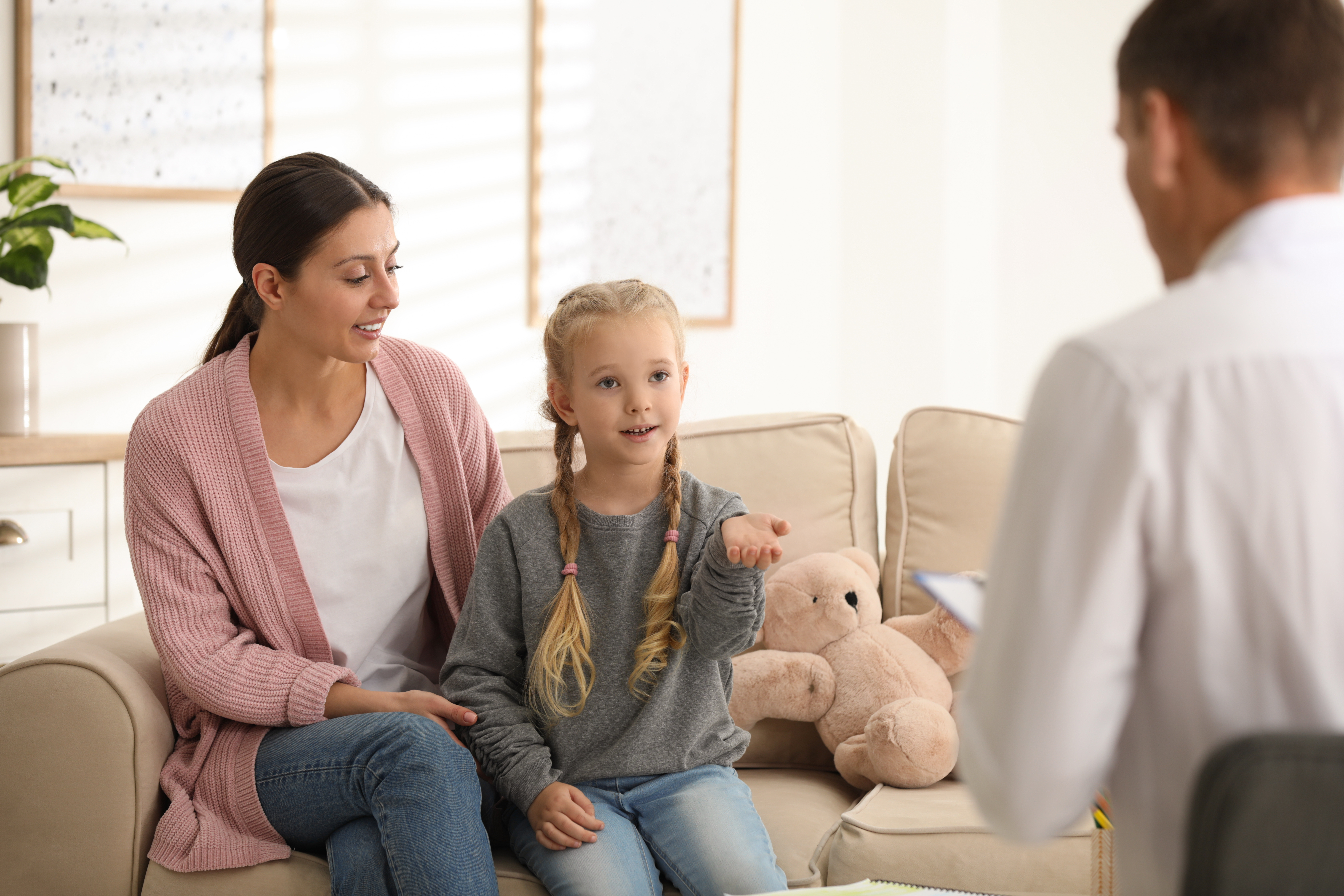How can we repair relationships with our children with Dr Kerry Sweeney, Consultant Clinical Psychologist
01st, Nov 2023

Brain based parenting
Did you know parenting is all in the brain? Attachment relationships, which are essential for all animals, drive brain development. Every element of our human development depends on the small number of core attachment relationships we have.
One of the primary aims of parenting is to be attuned to and understand our child's experiences. We need to try to keep the stress and stimulation these experiences create at just the right level, not too much, not too little! This is much easier said than done and this is why!
Our childhood experiences influence our parenting
It is important for parents to know that our own children can trigger emotions for us, often connected to our childhood and previous relationships! This can leave us with feelings at times, which seem disproportionate and difficult to make sense of.
Therefore, first and foremost, we need to reflect on what may be impacting on the connection; what is getting in the way? This is especially important if it feels like it is happening over and over again! Reflection is important to be able to connect with our children.
We also need to figure out ways to regulate ourselves before we can support our children to regulate. If our brains, bodies and nervous systems are heightened and defensive, we can evoke further upset for our children (and partners!).
So, we need to breath first and figure out what helps us to begin to self-regulate before we can begin the process of regulating and then reasoning with our children. A ‘tag-team’ approach with another caregiver can be helpful to allow us to take time to self-regulate, if we are feeling like our buttons are being pushed.
Regulate, Relate, THEN REASON!
Enhancing emotional regulation for ourselves and our children does not need to be complicated and should be a daily focus to allow for more emotional capacity when things start to get tough. Think of a sensory regulation routine, getting outdoors to help your child to explore, play and reconnect, as this can reduce anxiety and improve emotional well-being, social interaction and your relationship.
Some simple ideas are going to the garden, park, forest, or beach with your child and encourage all activities to dig, climb, crawl, pull up and swing. Encourage your child to do physically fun tasks throughout the day. Building a den inside or in the garden and explore what sensory toys/cushions/lights your child enjoys, can be a help when big feelings are emerging.
Also encouraging your child to engage in various community activities regularly, which help with regulation; swimming, cycling, trampoline, running, dancing, music, gymnastics and yoga can make a difference.
It is helpful to have a range of activities well practised and redirect to them, when emotions start to build. This may reduce emotions building further and allow for the next stages of relating and reasoning faster. Each child (and adult) is different, and it takes time and patience to figure out what is going to help to regulate them.
Relate & Reason using PACE
Once we are feeling calmer and our children have been supported to regulate and settle, then their brains, nervous systems and bodies are ready to begin the process of repair and reasoning. These conversations, although difficult at times, allow for opportunities to connect more with our children and are important for scaffolding their understanding of emotions and relationships.
Naturally, physical connection with our children is essential and especially at times of upset, so allowing for conversations with our children being physically close to us is important. We often think eye contact is necessary at these times, but if shame has been evoked due to the circumstances, this can be hard. Sitting alongside with our arm round our child, touching their arm, hair or whatever they can tolerate, is helpful.
Dan Hughes, a Clinical Psychologist from America developed a therapeutic parenting model, initially for children who had experienced trauma. However, it is a wonderful way to communicate with ALL children. This model highlights the need for a PACE parenting attitude. PACE stands for being playful, accepting, curious and empathic. It is the fundamental cornerstone of attuned parenting. Each step does not have to be in sequence, rather it is helpful to weave in and out of each part.
Playful:
Starting with playfulness can really break the ice for the harder parts of the conversation you need to have with your child. Play is fundamental to a child’s development and to their sense of self-worth. There are so many ways to be playful with a child, but a playful attitude goes a long way and is simply a way to show you enjoy your child and the relationship with them.
Acceptance:
Showing acceptance of a child creates psychological safety. This does not mean you accept the difficult behaviours, but you understand the reasons behind their difficulties. Remembering that behaviours are a way of communicating hidden needs and anxiety, can help you with the development an accepting attitude. Ideas for accepting expressions are, ‘I am glad you have shown me that you are scared/sad, but it is not okay for you to hit your brother. Let us see if we can figure out another way for you to show me these feelings.”
Curious:
Curiosity can help to think about why the child is exhibiting difficulties instead of getting frustrated. ‘Wondering out loud’ about what has happened is powerful for a child. It enhances their sense of being worthy enough to be held in mind by loving parents.
Curiosity is more helpful than asking direct questions, which children often really struggle to answer as they often just do not know the answer! A curious question might be ‘I was wondering if you are letting me know by being cross that you are really worried about ….?’
Empathy:
This is most important and is a feeling. Really getting what your child is struggling with and genuinely communicating this to them verbally and non-verbally is essential. Once we have empathy for a child, we can begin to think about how we can support them. It is at the core of attuned parenting.
PACE – golden rules!
- Remember behaviours are a way of communicating needs
- Say something that guesses how your child might be feeling
- Try to avoid direct questions
- Wonder out loud about their feelings
- Do not try to make it better, find a solution or give advice initially, that comes after.
Key points to repair relationships- children need adults to:
- Work on helping them feel safe
- Work on helping them regulate daily
- Work on own emotional regulation
- Taking time to pause and see underneath the behaviour.
- Think, what is going on for me and my child rather than what is wrong with them?
- Show a PACE parenting attitude verbally and nonverbally
- Try to help them to make sense of what they have experienced and how it impacted on them
- Encourage and support them to have the bravery to try new things.
- Take care of yourself as parents, as parenting can be challenging!
When might you need to seek help for your child/family?
Most children and teenagers are well nurtured and supported by their families, teachers and friends. However even despite this, some children can continue to struggle with their emotions, which can impact on how they behave, socialise, manage school and day to day life. There may be a need to access professional support; sometimes a parent support session might suffice. At other times children/teenagers would benefit from psychological support. However, parents should remain involved to support their children.
If you would like to book an appointment with Dr Kerry Sweeney, please text BOOKNOW to 66777 or fill out our online enquiry form.
Recent Articles

